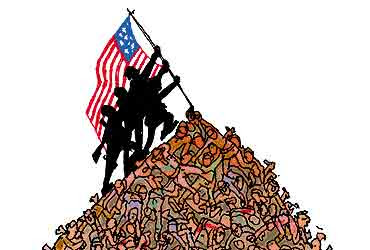December 1941

Retellings of Guam history focus heavily on the end of the World War II on the island, and de-emphasize the start of the war. It is like this for some obvious and some less-obvious reasons. As I've written about before, where you place the narrative locus for these 32 months of Chamoru history will heavily affect what type of lessons or ideas emerge. If you focus on the end, the triumphant American return, where the Japanese are defeated and Chamorus are liberated from tyranny, the lessons seem pretty clear. American power and benevolence and propensity for liberation and democracy spreading. Chamorus become attached to the US and its history through that ending, as an object of their grandeur or their exceptional excellence and virtue. But if we switch the story's focus to the beginning things get much more complicated. We see at the beginning of war, an island where Chamorus trust the US to tell them the truth, to keep them safe, but they also understand in an important...






